A Conversation with Elizabeth Butters
(Part 2)
(June-August 2009; Part 1, if you missed it)
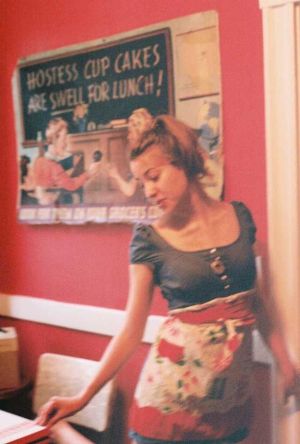
Doc: Have you ever killed a man with a handgun?
Elizabeth Butters: No.
Just a warm-up question.
It's a necessary question.
The follow-up would be, have you killed someone without using a handgun? Or, have you killed someone who wasn't a man?
I haven't killed a human being.
Fair enough. I wanted to ask you about the murder ballads, because I noticed that a few people who'd written about you had commented on what they took to be your morbidity. It doesn't strike me as morbidity at all, but do you think that the murder ballads and songs about death appeal to you for reasons different from the reasons they appealed to the people who originally sang and listened to them?
That's a good question. I actually wanted to propose to teach a class at Wellesley, when I was a student there, that I wanted to call "Gender and the Murder Ballad"—because everything that has the word gender in it gets approved at Wellesley—I didn't end up getting to ask the teacher that I wanted to assist if he would be willing to do this, because he got sick. But I do think that murder ballads are really not about murder. The murder part of them is just to get people's attention, and to make it a good story. My theory is that they're societal warnings to girls not to go out with boys before you're married. There's only one murder ballad that I can think of that's a true murder ballad, not just a song in which someone gets killed—because that doesn't necessarily make it a murder ballad, in my book ("Henry Lee" is the only one that comes to mind where a girl murders a boy)—all the other ones are where a guy takes a girl out and asks her to, basically, fool around with him, and then he murders her, because he doesn't want to marry her. Or maybe she's pregnant.
I'm usually just drawn to the melodies, or the fact that they have some kind of shock value, or that I'm a girl, and I think that folk music is very feminine—without being dainty.
Feminine in what way?
I think it really sides with women. A lot of lullabies are very sad, and it's not for the sake of the baby that a mother is singing it to, because the baby doesn't understand the words, it just hears the melody. I think they're sad because of the mothers. The mothers are sad to have had the children, and be taking care of them. The murder ballads are sort of feminine, the lullabies are feminine, and that comprises at least half of all folk songs.
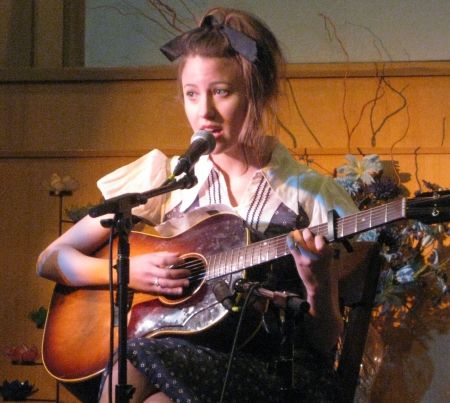
It seems like it would make sense that lullabies would be feminine, but how do you think that the murder ballads came to be feminine? Were a lot of them written by females?
No, I don't think so. I mean, they're so old, there's just no telling, because they're probably five hundred years old, most of them. I don't think there's any telling, I just think they are. Like the song "Omie Wise" is about an actual occurrence, from the 1850s or 1860s, I think, and that's one of the few songs that retains the verse that mentions a baby. She says, "Have mercy on my baby / Have mercy on my life," and John Lewis still murders her. So I don't think it really matters who wrote them—I guess I'm being redundant here—but I do think that they're meant, by a father or a mother, to warn daughters to beware of men.
That makes a lot of sense. I never thought of that.
It's not really a fact, it's just kind of my take on it, which is why I wanted to—you know how a lot of college classes are based around a professor's specific thesis on a topic? That's kind of why I wanted to teach a class about it. I figured I'd be one of those teachers who gives the students almost no work and then gives them good grades, so everyone likes me.
It's funny how that tradition continues. You know who Hank Ray is, from the Raymen?
No, I don't.
They're kind of a death country band, I guess. Ray has songs like that. He has a song called "The Ground is Cold as Clay," and I don't think it's a cover, where a guy's sitting around in his jail cell because he killed his wife or his girlfriend. It's interesting that that tradition still continues.
Yeah. And I don't know whether it continues because he's influenced by the older stuff, or because he had similar sentiments.
I would think the former, definitely.
Yeah. Me, too.
Even the ones that aren't feminine have so much to do with regret. I think regret is one of the saddest of emotions, because it indicates that you could have done differently. Like when somebody dies and you're sad about it, it's not really your fault that the person's gone, but so many of the folk songs have to do with regret. So I guess that's touching, to me, about them.
But also, I just really like saying the words pistol and rifle. I like the sound of the words. And it's as simple as that, I guess.
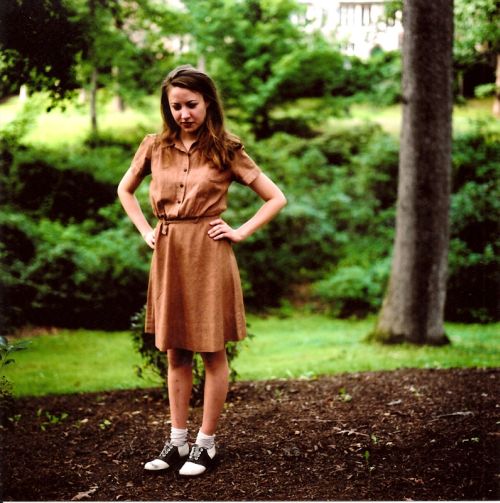
A lot of times the later work of singers is kind of crappy, but it's interesting that some of the old cowboy singers seem to do some of their best work when they know that time's about run out. Johnny Cash did. And Rex Allen. Have you heard any Rex Allen?
No, unfortunately, I haven't. I'd like to.
He's another one of the old movie cowboys. When he got old, he did a record [A Pair to Draw To] that'll tear your heart right out.
That's interesting, because a lot of artists just peak at a certain age, and that's that, so it's nice to remember the ones who go out with bang in old age.
Did you happen to listen again to "They're Hanging Me Tonight"?
You know, I have listened to it again, and I just don't really see where the way I sing it is different from the way that Marty Robbins sings it, except for the fact that my voice is higher, and I couldn't figure out all of the nice guitar leads.
It's interesting to me because you have no problems with tone—as a straight tone singer, you don't have that luxury.
Well, I may have cut out . . . I tend to cut out melisma, sometimes, because I really have my radar up for people who oversing. If that's the case, if it's something I don't think will translate well to my particular singing style, then I would just leave it out.
It's almost as though there's another song that's kind of getting grafted on top of it. I can't put my finger on it, but it sounds like another song I can't think of.
It's highly possible that I've heard other things that influenced it, and I'm just forgetting what they are. That's not really a song that I do that often. I kind of do that more like a novelty sort of thing.
You play it out, though?
I have, yeah. I do. I sort of need to switch around which ones I do, and when, because I kind of get sick of playing the same things, so I haven't been playing it lately. But I was doing that a lot in the Fall, pretty often.
I wanted to ask you about something you said in the first half of the interview that I thought was interesting as I was reading through it again. You used the phrase, "I'm obsessed with myself."
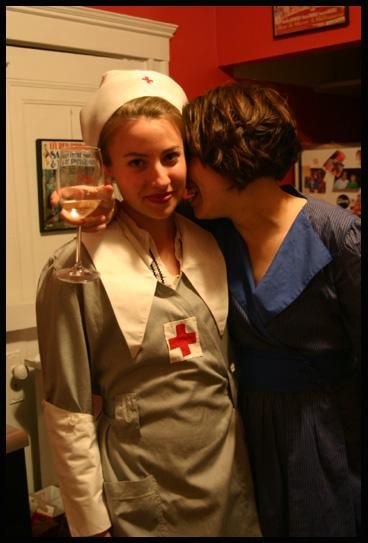
Yes.
Most people wouldn't be willing to say a thing like that, because they'd think people would think it means you're self-absorbed.
Yeah, sure. Well, you know, I am kind of self-absorbed, but I think that I try to be a good friend and a good person. I try not to deny myself the self-absorption, because I think that's where you turn into a bitter person, if you just completely deny what your nature is, at a certain developmental point in your life. It's possible that in ten years I won't be so obsessed with myself. It's already gone down a lot from what it was when I was a late teenager. I think the more that you actually produce work and it gets out of you, the easier it is to be less compulsive. I was just reading the preface to the book Mary, by Nabokov (I say NA-buh-kov, not nuh-BOH-kov—I don't know, I just like the way NA-buh-kov sounds).
Apologies to Nabokov scholars everywhere (I say that because I have a friend who is one).
Nabokov was saying something about Mary being his first book, and how one of the few rules that he'd accepted is that your first work is going to be autobiographical, not so much because of the need to tell other people about yourself, but almost as something—I'm really not going to phrase this correctly, but I thought he said that it was so you could kind of—he definitely didn't use the word vomit, but I took it to mean so you could kind of like vomit out some of the things that you need to get out, in order to move on to better and purer things, maybe. If I turn out being, like, sixty years old, and I'm really, really fixated on myself still, that would be more of a problem. But I try to document the things that I do and the way that I look without it hurting other people. I don't really see that it hurts anyone if I take some Polaroid pictures of myself in various outfits. It's vain—and maybe it's also in vain—but hopefully I'm not obsessed with myself to the point where I can't help my friends with their problems, and I can't empathize with other people.
You come across, actually, completely the opposite. For one thing, you're polite, but you also seem genuinely interested in other people. That's why I thought it was an interesting contrast.
Well, thank you, Doc. I feel like I haven't done the best job when we talk. I've been pretty neurotic, most of the times when I've talked to you, and I've just been talking about myself, which I feel really bad about, but yeah, I think I'm kind of known among my friends as someone that they can call at any hour, who will really go all the way to listen to them.
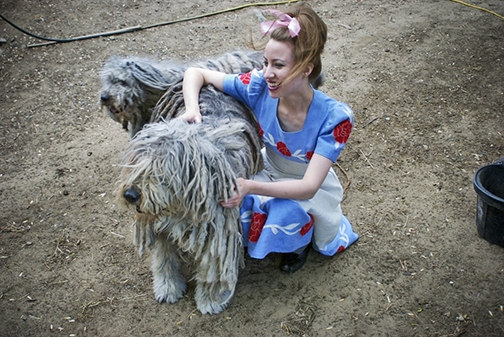
As far as the outfits go, that plays into the way we were talking about using your appearance and persona almost like an instrument.
Mm-hmm. I dress according to my moods, too. If I feel like being a certain type of person one day—I'm still always myself—but if I feel like being more of an adult. All my clothes are old, but sometimes I can look a lot younger than I am.
So you mean in everyday life?
Yeah, like in everyday life, if I feel a little bit childlike, or I feel like I want people to treat me delicately, I guess I'll sometimes purposely wear something that makes me look like I'm a late teenager. Depends on what mood I'm in. Certain colors are very—I never would've thought to use the word sensual. The word sensual kind of grosses me out, but my seventy-five-year-old friend Byron sometimes says, when I wear certain colors, "That's a very sensual color," and he doesn't mean it in a perverse way at all. There's a kind of burnt-orange shorts I have, from the forties, that I wear pretty often, and he always says, "That's such a sensual color, that color just drives me nuts when I see it." And he's not talking about in a sexual way. I've come to recognize certain colors as having those properties. So if I want to feel tactile, kind of [laughs], I'll wear those colors.
In the movie Animal House, they talked about the difference between sensual and sensuous.
And what is the difference?
Have you seen Animal House?
I've seen Animal House. Maybe sensuous is the one I mean to say.
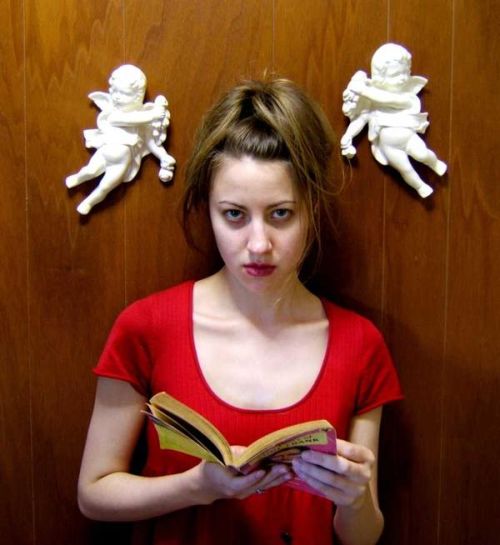
I was interested, too, that you were saying that you match your outfits with your set list. I'm curious how that works out in practice.
Well, if I'm playing more cowboy songs, I'll wear something sometimes that looks more western. Not blatantly western. I'll allow myself to wear more taffeta—
I'll have to look up what that is.
Some fabrics that I like are taffeta, organdy—
Organdy?
It's spelled o-r-g-a-n-d-y. There's silk organdy and cotton organdy, but dotted Swiss is my favorite. Organdy and dotted Swiss and taffeta and satin are all nice fabrics, but—
Dotted . . . oh, boy.
Dotted Swiss. It's a type of cotton that has little dots. So if I have a set that's mostly Depression-era things, I would wear cotton or dotted swiss sort of cotton. But if it's a set that has more cowboy songs or things that I think could have been performed in a public arena, rather than in somebody's home, then I would wear something dressier. Whatever I wear is equally costume-ish, but I'll wear something that's dressier if the songs are more like . . . written, or crafted, songs, as opposed to older folk songs.
So you would match your dressiness more to the material than the setting in which you'll be singing.
Yeah.
I'm getting it. I'm just not somebody that thinks about clothing. I don't even think about colors, really.
I don't want you to think that I'm overly—I'm totally fine with wearing the same thing five days in a row and just walking around in . . . I'm not overly concerned with fashion. It's something different. It's that I really value the objects I've collected, and clothes comprise a lot of the objects. I don't know if that's proper English. But I want to do justice to the clothes that I have by using them in the proper situations. It's just as easy to dress—for me, anyway—it's just as easy to dress poorly as it is to dress well, if your clothes are all used. It's like getting dressed every day is looking at your palette—your palette being the things in your closet—and arranging them, in a way. It's like a collage [laughs].
That's cool. It's just something that's not natural to me at all.
Yeah, it's a little bit weird, I guess. What I want to emphasize is that I'm not necessarily into looking girly.
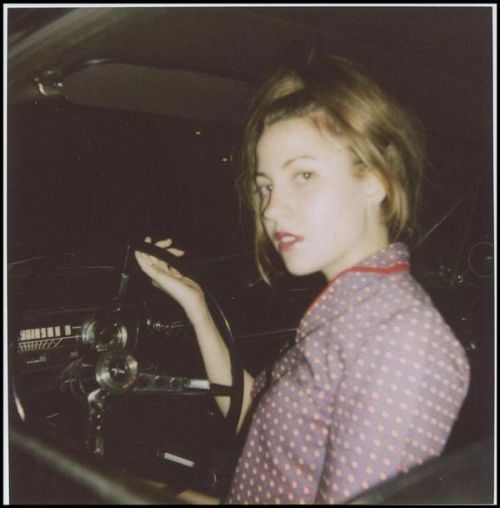
I wanted to hop back to death songs for a minute. I saw the video where you're singing "Spanish Merchant's Daughter." Do you know any other songs that sort of play with what you were talking about, where it's a warning to the daughters, and turns that idea on its head?
That turn it on its head? There are a lot of courting songs where the boy asks the girl how old she is, and it might say, "she answered him with a silly little smile / I'll be sixteen this Sunday," or something, or a man asks her to marry him and she says "I'll marry you / But I won't do / Your washing or your cooking." And he says, well, then, no. There are a lot of songs that go back and forth about asking to marry and at the end they both end up mad at each other in a very childish way, and they're not going to get married. There's "Paper of Pins," and there's this song that I call "How Old Are You My Pretty Little Miss," because that's the first line in the song, but I'm sure it has a real title. Some of them are courting songs and play party tunes.
I mean specifically, songs that turn the tradition on its head, in that it subverts—if you're right about songs trying to discourage daughters from going out with men, a song like "Spanish Merchant's Daughter" subverts it, in that she's supposed to say no, so the questions are just phrased upside down.
I'm not really sure, because I'm talking about a very specific type of English-Scottish murder ballad, and there are so many different kinds of folk music under the umbrella of the term, and so in old time bluegrass, even those other genres, there are lots of different kinds of thematic . . . like the "Spanish Merchant's Daughter" is not really . . . because some of the murder ballads are child ballads, and "Spanish Merchant's Daughter" is not.
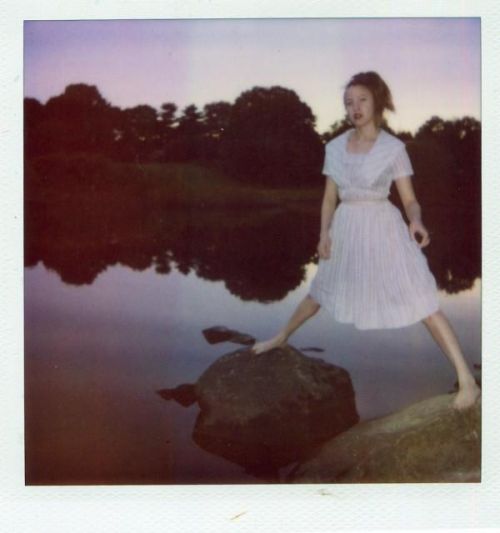
Do you write songs at all?
I have written some instrumentals and I will write answering machine messages, and I wrote a jingle for my dad's office.
I like your voicemail jingle. It gets stuck in my head, though.
I had a different one. That was part of an instrumental that I wrote that was much longer. I had a different answering machine outgoing message a few years ago that was much better than the current one.
Do you play the ukulele?
No.
I just had to ask that so I could have a link to my ukulele website.
Of course.
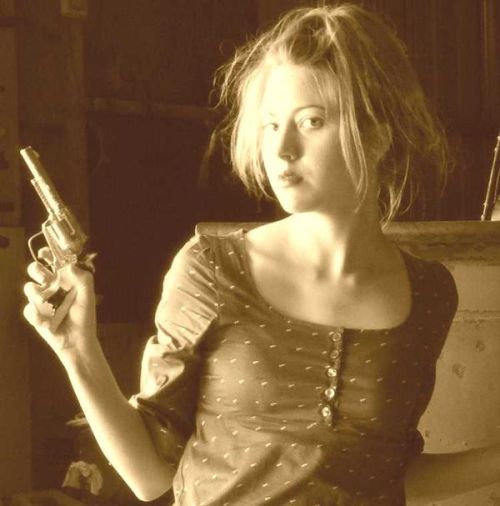
There seems to be a contrast between your voice as you talk on the phone and your performing voice—even your speaking voice, when you perform. Is that part of the persona?
You mean you think my phone talking is lower or higher?
Lower.
When you first met me was it lower?
Yeah.
I talk in a higher voice when I'm nervous or excited.
So you're just bored right now.
No, I'm just not particularly nervous or upset. Also, I'm lying down.
I didn't know whether it was intentional.
No, it's unintentional. Also, it's a little bit embarrassing how high my voice can get with the talking. I was in a movie that played in a theater, and my first line in the movie is "Hi." And everybody in the whole theater laughed.
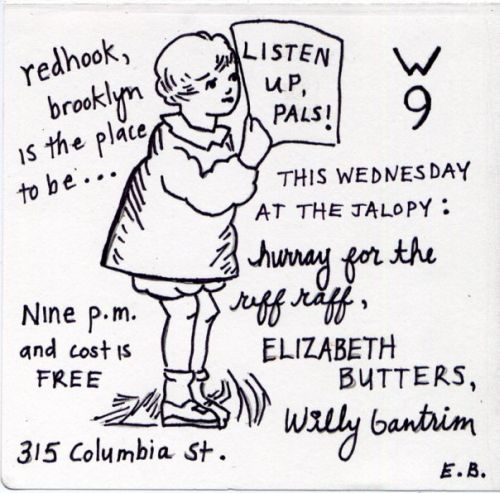
How did "A Traditional Song" come about?
Oh [laughs], well, my friend Noah has been in several bands, including The Best Thing Ever, ROFLcopter, and Small Courage, his hardcore band right now. Bean of Anger ["what if all of your anger were focused into one tiny bean"] was kind of a joke. I came up with that name, so he had written this song that was kind of crass and inappropriate, which is often Noah's forte, and he wanted someone to sing it who sounded innocent, because otherwise it wouldn't really be funny. I'm not sure, but I kind of think he wrote that for me. I guess he felt that I was letting people walk over me. Not in the same ways as the female protagonist in the song! Not in sexual ways. But I think he felt like I was saying "sure, sure, sure" to a lot of people. Which is probably true, and so, in a way, his song sort of taught me a lesson, or made me try to learn a lesson, to not be so obliging just for the sake of being obliging.
How'd your sister like it?
Well [laughs], I sang it in front of my sister and my dad and I felt very awkward.
In front of your dad?
Yeah.
Was it at a show, or just in a living room?
At a show.
How'd that go over?
He didn't really say anything about it. I remember Noah asking me to perform it, and I said no, my dad's here. My dad heard me say that and said, like, "I'm an adult. You're an adult." Because I think he may have sort of heard the song. My dad's always been like kind of a pal to us, and never really gave us any rules or anything, and so I think a lot of the awkwardness wasn't because I would get "in trouble" or anything, it was just because it's a pretty dirty song. When Noah pitched the song to me, I didn't know what most of the things meant in the first verse. I mean, I knew that they meant something bad, but I didn't know what. So I figured, well, it's fine for me to sing it, 'cos I don't even know what it means.
[Note: Anyone who doesn't need the help of Urban Dictionary to decode "A Traditional Song" probably needs to be off the streets.]
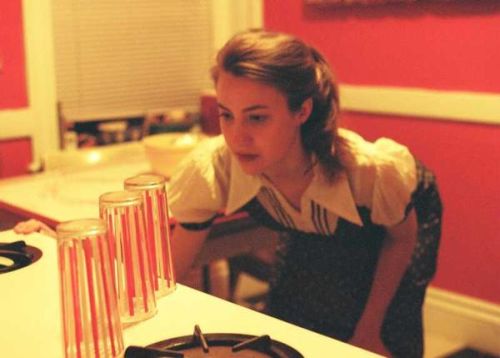
Your YouTube account is "VladKilmer."
My friend Benny, who does Red Bucket Films, was helping me make a YouTube account, because I needed to put some videos up when I went to record in Kentucky, so that the session guys there could learn the songs. And Benny said, "What do you want your account name to be?" And I said, "Val Kilmer." I guess because I think The Doors movie is pretty funny and, I don't know, I think Val Kilmer's someone who's gotten to be random, but he's still famous.
What do you mean random?
No one talks about him anymore, but he's still famous. He's not a legend, either, so he's just kind of in this weird limbo, so that's why I thought it would be funny. But Benny said that "Val Kilmer" was taken, and then he remembered that the guy who fixed my computer's name was Vlad, so we named it Vlad Kilmer.
I figured there was some kind of Dracula tie-in. I did read your story today, and I was really impressed.
Oh, thank you, that's really nice to hear. I wrote it in an hour, so. . . .
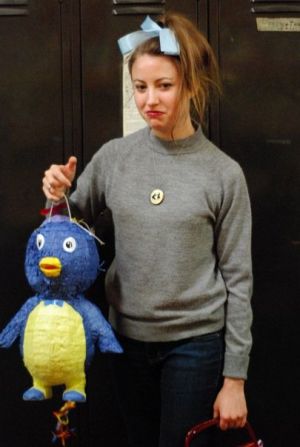
You wrote it in an hour?
Yeah, I wrote it in an hour and I didn't add anything to it after that, I just sort of made some grammatical changes.
That was an hour well spent.
Thank you. I feel that it encapsulated a lot of my thoughts on life and death.
It's very affecting.
Thank you. That means a lot.
Was that one that's in the—one of your story collections won an award, didn't it?
Yes, it did, and that was not in it. The essays won an award my senior year of college. It was called the Charlotte Reese Memorial Prize for, like, short essays or something. I don't remember what it was called. I didn't show up to graduation rehearsal, because I thought it was rehearsal, so I didn't have to go. I got there about two hours late, and I didn't know that I won a prize or anything, so my friend Olivia was like, "Whoa, they were calling your name!" And I said, "For what? Am I in trouble?" And she said "No, you won a prize." I was like, that's weird. She said, "Go collect your prize." It said that I was going to get some money in the mail. I had gotten $98 in the mail from the college, and I thought, whoa, that's kind of cheap—this college is loaded and all they gave me is $98? But then they handed me an envelope at graduation, and it was a $2,000 check! So it felt like getting a real prize!
These were essays—so they were non-fiction?
Yes, they were non-fiction. They're all in my book.
Ah. Got it. You're going to call your book non-fiction, then.
Well . . . I haven't decided, yet.
You're thinking along Capote lines.
Yes. Yeah. I haven't decided. I haven't been writing very much lately, which is kind of depressing, but I've been editing something for one of my friends, which has been kind of fun for me.
If I could knock out something like that in an hour, I'd be writing all the time.
Well, I think the reason that I can do it in an hour is because I don't really feel like writing all the time. I only really get kind of an all of a sudden very strong feeling that I need to write something down. I go through phases of nothing and then a lot and then nothing and then a lot.
Fair enough.
Right now I'm in a phase of nothing [laughs].
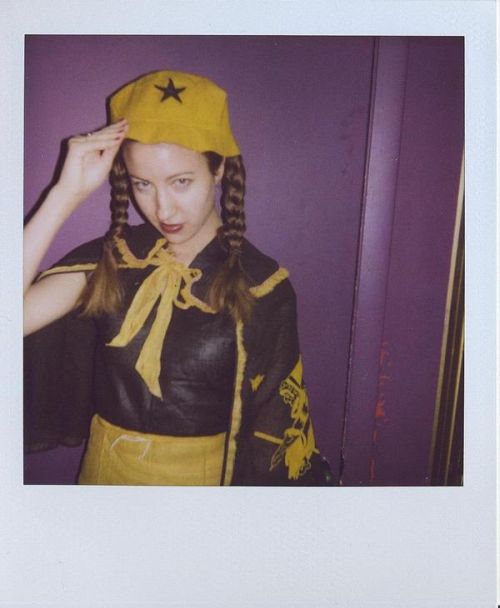
When you were a kid, were you a picky eater?
Yes! I was! And I'm not at all picky, now. Do you want to know what I ate? I ate steak, soft-boiled eggs, corn from the freezer, peas from the freezer, and rice from the freezer. And pretty much anything that was considered dessert was all right.
I had a hunch you would have been a picky eater.
It was weird, though, because as soon as I got to be in middle school, the only thing that I wouldn't eat was onions. I just never have liked onions.
I was a picky eater when I was a kid. I felt really controlled, and I think it was just a way to exert some kind of control, just stake out an area I could control.
Yeah. That makes sense. I was a really weird, really, really shy, very, very shy child. I wouldn't eat in front of anyone outside my family, and if people came over, I would hide under furniture, usually, until they left. Every once in a while I would get excited about somebody being there, and once I got used to people I became a chatterbox, but for the first hour or two that the people were there, I would be mute. When I was accustomed to them I would come out of a shell. Mom used to kind of trick me by eating part of my food. She said she was a taster. She'd try it first, to make sure it wasn't poisoned.
You overcame your shyness as well, seems like.
Yeah. I would say so.
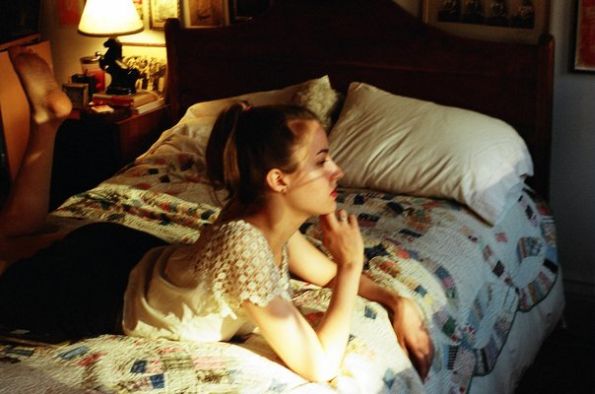
SIDEBAR:
I have an ongoing list I'm compiling. If I mention a blues song, people always say, "Eh, I hate the blues." So I'm making a list of Blues for People Who Say They Hate the Blues. It's a list of blues songs I think nobody could really hate. Any blues songs come to mind that you would add to a list like that?
What's that song that Richard Rabbit Brown sings on the Anthology of American Folk Music?
Oy. I have that, but I can't think of the name.
It's the one where he says, "Sometimes I think that you're just too sweet to die / And other times I think that you ought to be buried alive." [James Alley Blues]
Anything else? I know it's out of the blue, but—
It's not out of the blue, but . . . there are a lot of songs, but the problem is that people who think they don't like the blues think it's boring, because they're not versed enough in the genre.
The ones that I put on the list are ones that, when I play them for people, they'll go, "Oh, yeah, THAT one—that one's cool. What's that?"
I hesitate to just list something that became a hit, because, to me, the electric blues is smack in between country blues and rock and roll, so anyone who likes rock . . . you know? So I'll just leave it at that one.
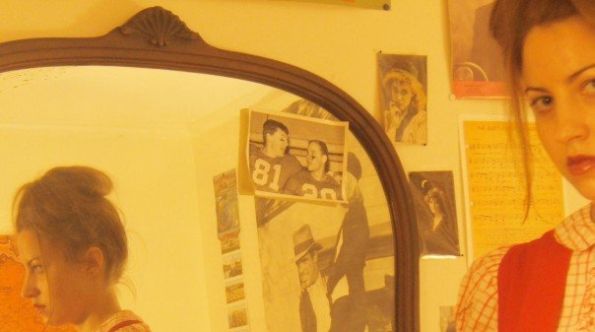
Elizabeth Butters on YouTube
|

